Cultural Heritage; " Wedding In IBIBIO LAND"
The Ibibio people are a group of people who live in Akwa Ibom state, Nigeria and they speak Ibibio Language as their native dialect. A small number of members of this ethnic group live also in Cross River State, Nigeria. Just like every other ethnic group in the world, the Ibibio people have their own culture, but in this post, I will be focusing on one of the cultures of the Ibibio people: their wedding; let's learn.
In Ibibio land, before a woman is finally given to a man in marriage, there are many steps a man would take. When a man sees a lady he loves and wants to marry, he would first approach her and express his feelings to her, and if she agrees to marry him, he would take the following steps;
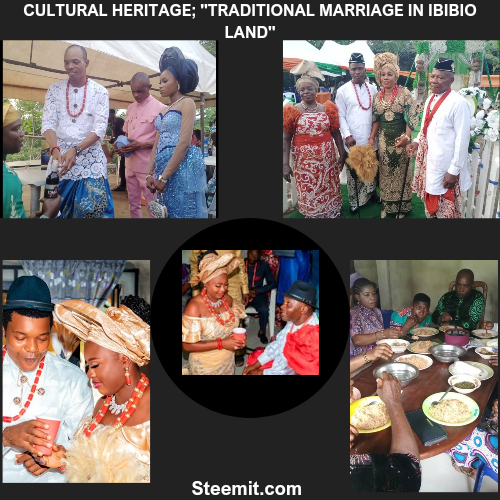
Created with canva
Declaration Of Intention To The Woman's Family Which Is Known As "Ndiono Ufok" In Ibibio Language
In this step, a man who wants to marry would inform the lady he wants to marry that he would be visiting her paternal home on a specified date, and the lady, in turn, would inform her parents and other members of the family that a visitor is coming to that house on that day.
The man would take alongside him his father or an older person from his family and whiskey (Gin) to the family of his intended wife-to-be. When they get there, the family of the lady welcomes them and gives them seats and refreshments. Afterward, an older person of the man's family would give the whiskey they came with to the father of the intended wife-to-be and inform him that his son wants to marry his daughter, then mention the name of the daughter they want to marry. In response, the father of the lady they asked her hands in marriage would summon her daughter and ask if she knows the man who wants to marry her and if she loves him. If she says yes, her father will inform the visitors that he will communicate his reply to them later.
The reason for the father of the lady not giving his consent instantly is that, in Ibibio land, the father of the bride-to-be has to investigate the family of the Groom and know if that family would be good for his daughter. When he gives his consent, the groom would move to the next step.
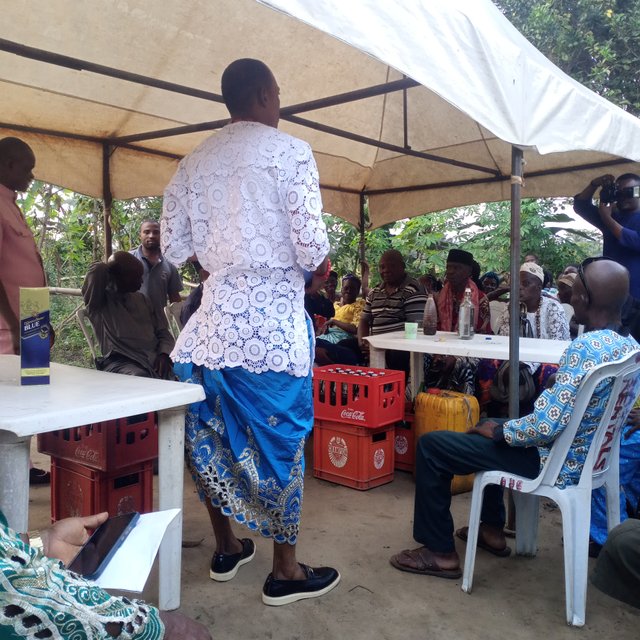
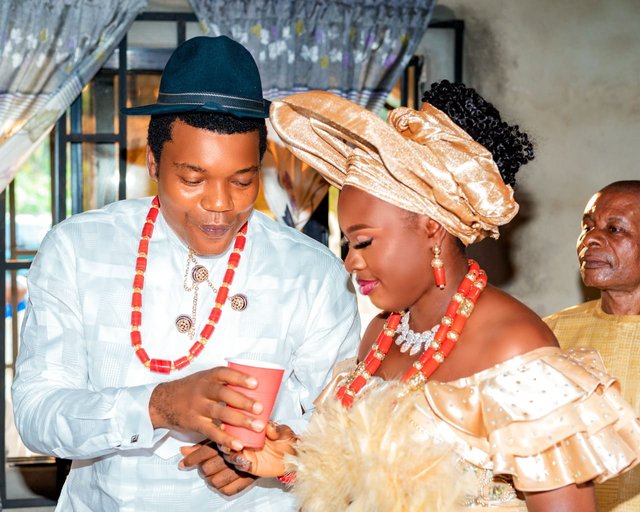
Knocking Of Door And Collection Of List For Dowry known As "Nkon Udok" In Ibibio Language
In this step, the father of the bride-to-be would inform the extended members of his family who would write a list of items and money to be collected as dowry of their daughter, and they would be present when the Groom-to-be comes.
The Groom-to-be would take alongside him his father and two to three extended members of his family, and while going there, he has to go there with some money or communicate with his father-in-law to know the items and money his family would collect for the collection of list of items and money for dowry which is known as knocking of the door.
When the family of the groom gets to the paternal house of the wife-to-be, they are welcomed and refreshed by the family of the wife-to-be. Afterward, they would give the required items and money and collect the list of items and money for the dowry.
If the family of the groom-to-be finds the list expensive and unaffordable, they can pay for some items and money that would be demanded by the family of the wife-to-be for the list to be adjusted. In the end, both families would reach an agreement on the items and money to be paid for the dowry.
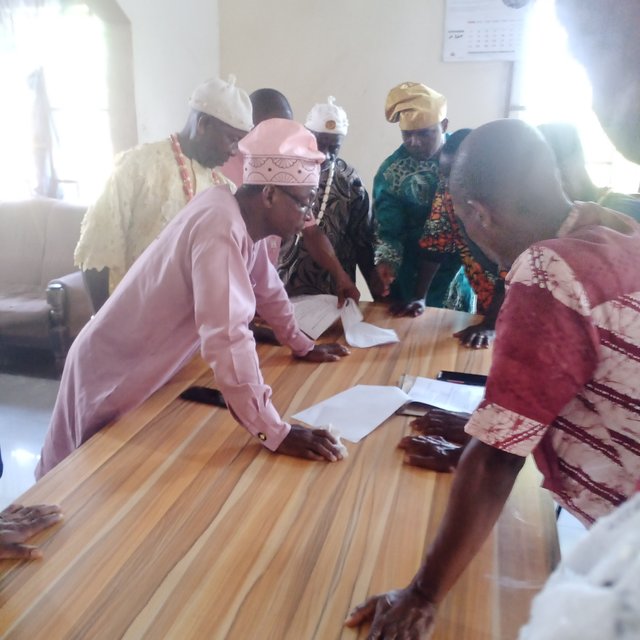
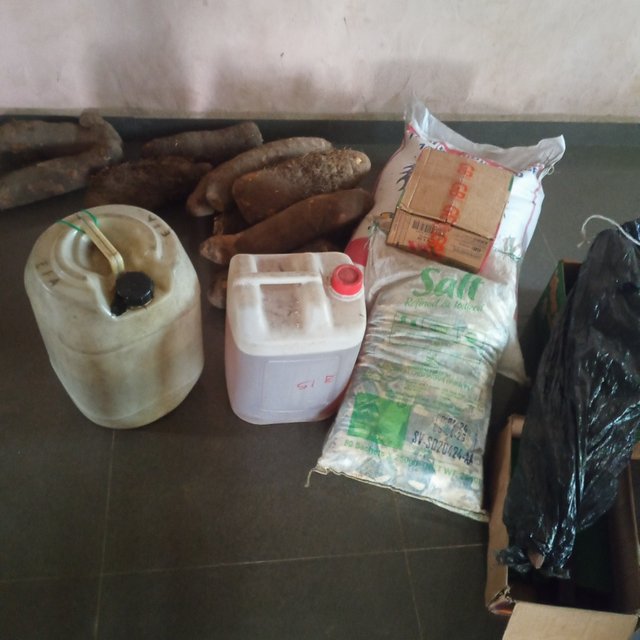
Consultation Known As "Mbup Ndo" in the Ibibio Language
In this step, the Groom would pay for some items like tubers of yam, illicit Gin, Goat, Palm wine, money, etc, for consultation.
The groom would come with his family members, both immediate and extended members, and the father-in-law would invite his family members, including the extended members of the family. When the Groom's family gets to the paternal home of the bride, they are welcomed and refreshed by the bride's family.
Both families would choose their Spokespersons who would be speaking on their behalf. The spokesperson for the bride's family would introduce members of his family, and the spokesperson for the Groom's family would do the same. Afterward, the spokesperson for the bride's family would ask the spokesperson for the Groom's family what brought them to his family, and in response, the spokesperson for the Groom's family would publicly let every member of the bride's family know that their son saw their daughter (name) and love her, that they are in the family of the bride to ask for her hands in marriage.
The spokesperson for the bride's family would summon the bride-to-be, and the spokesperson for the Groom's family would summon the husband to be, they would publicly ask if they have agreed to marry each other, and when they say yes to the members of Both families, that ends the business of the day.
Traditional Wedding Known As "Usen Ndo" In The Ibibio Language
This is the main day, the day the bride would be given in marriage. On this day, the groom would pay the dowry for his wife, and this was made of traditional items like tubers of yam, drinks, Goats, dresses money, etc.
When the groom and his family members arrive, the bride's family welcomes them into the sitting room, and they dine there and eat a variety of foods. Afterward, they come outside to the ceremonial ground where both families would sit for the occasion.
The spokesperson for the bride's family would welcome everyone to the ceremony, and ask the spokesperson for the Groom's family to select his delegates who would go alongside the delegates from the bride's family to confirm if the items on the list for dowry are complete. When this is done, and delegates from both families are satisfied with the items, they will come outside to the ceremonial ground and proceed with the marriage.
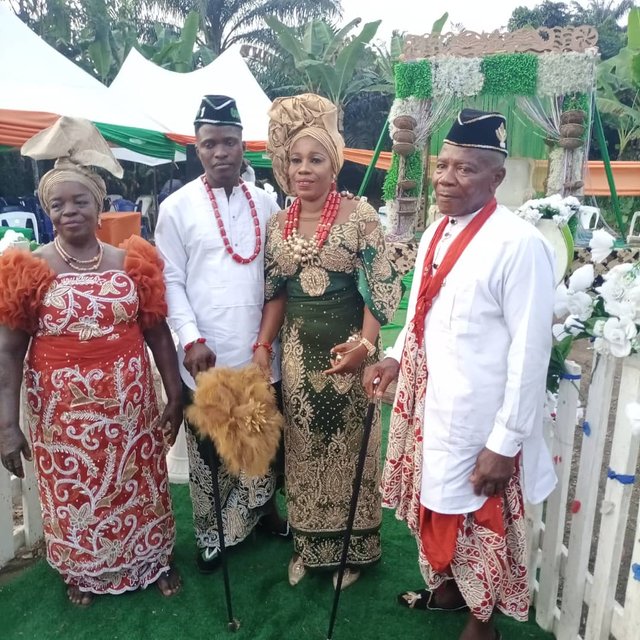
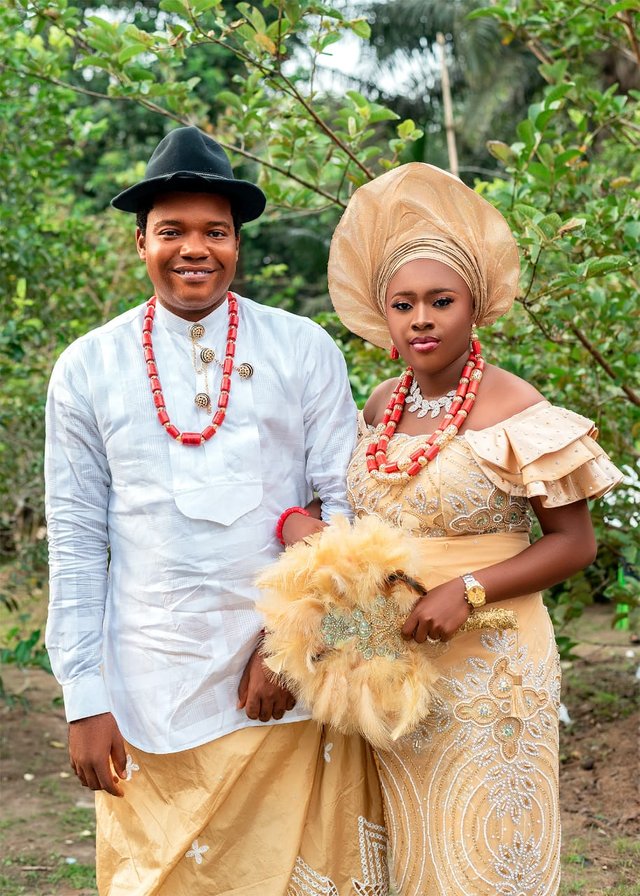
The spokesperson for the bride's family would ask what brought the Groom's family to his house, and in response, the spokesperson for the Groom's family would say they came to marry their daughter and mention the name of the bride. The bride's family would request the groom first, and the groom's family would bring the groom with the accompaniment of music and dance. When the groom is presented, he will be given a seat. The groom's family would request for the bride, but they will have to give some money and wine to the women of the bride's family as fare to bring them the bride.
The bride would be brought with music and dance. Then the groom would take the bride to his parents, and after giving them wine, he would tell them that he wants to marry her. The bride would do the same with her parents.
The parents of the bride and groom would come out to the middle of the crowd, and the father of the bride would hold his daughter's hand and hand her to the groom, and both families would join them in marriage. They are now married.
It's not an easy journey for a man to get married in Ibibio land; is that how you feel? Many scale through the process, it's just tradition and culture. Would you mind telling me about your culture regarding marriage? Please let's keep the conversation going, and thank you very much for reading.
Best regards
@iddy
Upvoted! Thank you for supporting witness @jswit.
Appeal to community members:
Thank you very much, sir, for the verification.